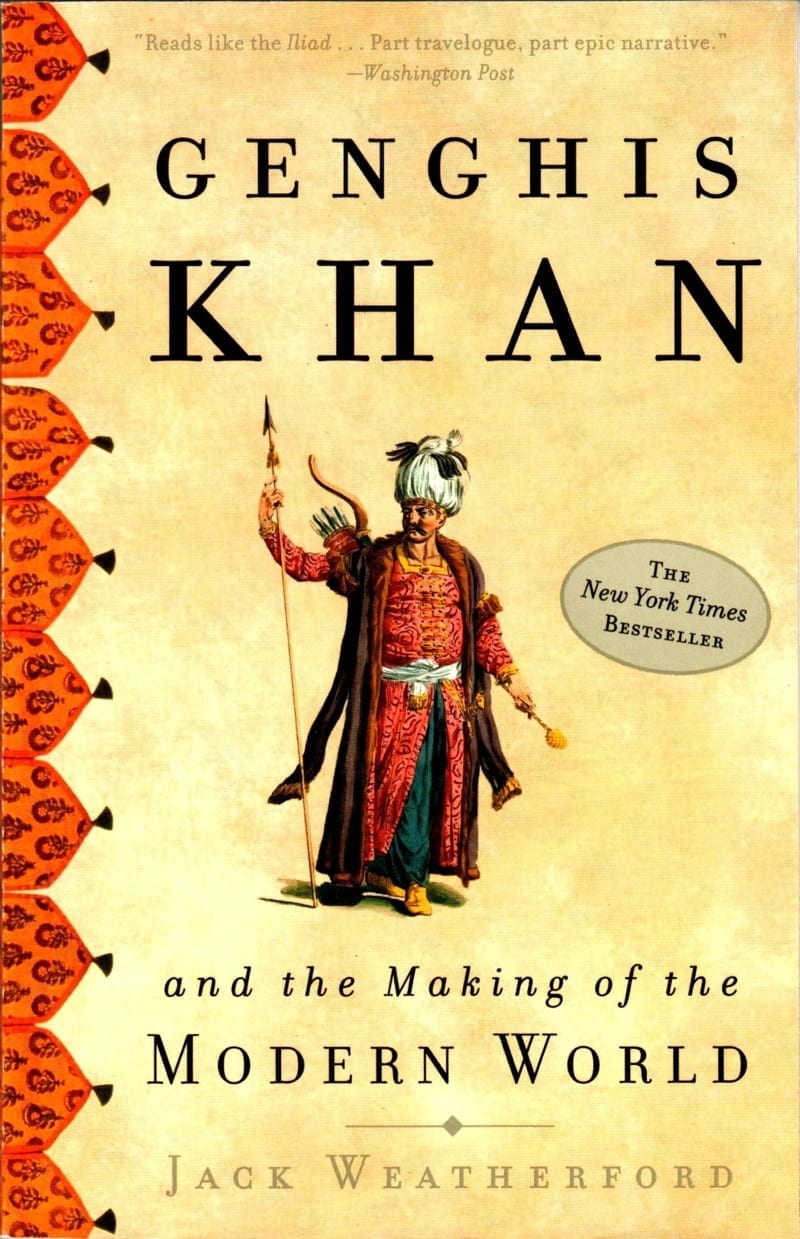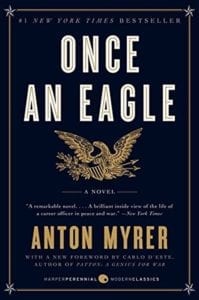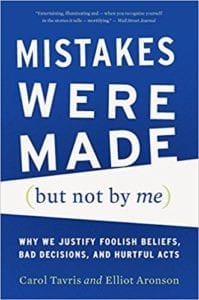Genghis Khan
My Thoughts
Jawaharlal Nehru, the father of Indian independence, was in prison under the British in the 1930s. During this time, he sought to better understand his history and would write letters to his daughter. He made the most pithy statement possible when he said this about Genghis Khan:
“Alexander and Caesar seem petty before him.”
I think back to middle school and high school and how much of my history education was built around the Europeans like Alexander and Caesar. How we spent multiple classroom discussions on the European Renaissance and the later Enlightenment and the subsequent benefits to civilization, but little to no time on the benefits from Asia, much less those originating from the Mongols.
Genghis Khan and the Making of the Modern World by Jack Weatherford is described as “revisionist” history. Mr. Weatherford claims a new angle on Genghis Khan by finally having access to “Secret Histories” previously hidden by Mongolians and then the Russian Communists. By having access to this new information from the Mongolians and by retracing the footsteps of Genghis Khan, Mr. Weatherford presents a more sophisticated, less blood-thirsty portrayal of Genghis Khan, that is if you weren’t killed by him first.
The main thing I noticed is that Genghis Khan is portrayed in a great light. A lot of civilization’s advances that we now enjoy or laid the groundwork for what we enjoy, came from the Mongol empire that stretched from Eastern Europe down to the Middle East and over to Eastern China and Korea.
It was interesting to see where the Mongolians ran into trouble along the way – sea battles and inner decay. The Mongolian army was amazing on land in cold weather climates. Two sea battles into Java and Japan ended with disastrous loss of life for the Mongols. The second major point of trouble was in poor second-generation leadership. Ironically, the 3rd generation of Mongol rulers did better than the mostly drunk 2nd generation.
The final death bell for the Mongols came from an unexpected place. It was not a stronger army or a 4th generation of decadent leaders that finally did them in. It was the Black Plague. Nearly all of the commercial systems, trade routes, and order broke down in the wake of 1/3rd to 1/2 of populations dying from the plague. Compare that to percentages of dead in WWII and you see how this shut everything down – England 1%, France 2+%, and Germany 9% compared to between 33 and 50% dead in England during the Black Plague.
In Tools of Titans, Tim Ferriss made note that this book had been suggested to him by several billionaires. I mention that because it is the only suggested book from Tools of Titans where Ferriss makes this note. I think the reason it is so loved by billionaires is because Genghis Khan and his heirs approached huge military, administrative, technological, and commercial problems with unique insight. I was astonished at how the Mongols would learn from their conquered people, would take in
I underlined nearly half of this book. Almost all of the material was new information to me, and it fascinated me. Here is a list of things that stuck out to me the most:
- Genghis Khan was sure to care for the widows and orphans that resulted from a soldier’s death. The widows and orphans were given the soldier’s share of the loot after the battle.
- Genghis took in intellectuals and the skilled members of conquered people in order to learn from them. This was not common in past or even recent history where the educated class was the first to go.
- Conquered lands were given nearly complete religious freedom at a time where one religion reigned supreme in Europe and others were burned.
- The Mongols traveled with engineers to build bridges and weapons en route. They also got their food on the trail instead of carrying caravans of food for soldiers. This turned them into one of the most stealthy and fast armies in history.
- Prosperity from rapid looting led to a desire to create a system of global trade.
- The Mongols did not torture, maim, or mutilate. They liked to execute without the sight of blood.
- At the rising threat of Mongols, Europeans blamed Jews and killed many.
- China was the center of manufacturing for the world. In the 1400s!
- When the men were away at battle, the wives/women mostly ruled. The women were for the most part Christians.
- Mongols were the latest non–Muslim army to conquer Baghdad until the USA/British in 2003.
- 20,000+ public schools were created in the area of China controlled by the Mongols.
- Author says Europeans benefited the most from the Mongols. Didn’t experience the brunt of the conquest but realized most of the gains of trade and ideas.
- Rabban Bar Sawma, a Mongol envoy, had communion with King Edward I, the king who attacked the Scots and William Wallace.
My next step is to listen to Dan Carlin’s Wrath of the Khans series from his Hardcore History podcast. I think that will be a good balance to this book. The book seemed a bit rosy on history’s final analysis of Genghis Khan. I remember one episode from Dan Carlin’s podcast where he asked at what cost is it ok to have these advances in civilization? Genghis Khan was responsible for mass slaughter and the deaths of millions. Should that make the following benefits and impact of his dynasty on civilization acceptable? That’s a question left unanswered in this book.



